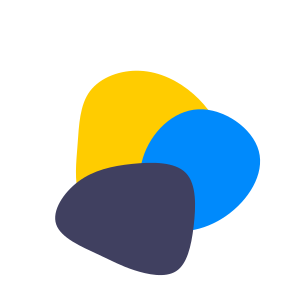4 underutilized ways to ignite conversions with copy and content
How to stop missing conversion opportunities by aligning copy and content
Content efforts are often focused on increasing your domain visibility and optimizing for search engines, and little thought is given to what happens after you get those visitors on your page.
This means getting sidetracked into creating clickbait / hot-new-topic / trending-topic-that's-not-really-relevant-for-our-audience content that increases your bounce rate and decreases conversions.
Not every blog reader is going to become a customer. Not every blog reader is going to become a subscriber.
But that doesn't mean you shouldn't try to convert as many of your blog visitors as possible into subscribers or customers.
Frequently missed opportunities on startup websites, and how to get more out of your blog posts
You publish blog posts regularly and get traffic, but your website copy is vague and doesn't explain what you do and who you do it for
Why it matters: even the most fascinating content is there to bring traffic and convert it into customers or subscribers. If you want subscribers, then your "sign up to get news and notifications" page or pop-up should give reasons to sign up.
If you want trial users or demo signups, you also need to give me the reason why — and show that this product is right for me. If your website doesn't do a good job of explaining what you do and who you do it for, it's not likely to convert.
Blog post content is for one stage of awareness only
Whether you use stages of awareness or the search motivation framework to plan your content, it shouldn't focus on just one stage (product updates for existing customers that you'd like to switch to a paid plan or "Why you need our product in your life" for prospective customers researching a solution).
Example of a better approach: Reclaim is developing their product and has tons of exciting new features. But they also address the audience of people who are tired of wasting hours on setting up their various Google Calendars to talk to each other (raise your hand if you’re one of them).
Reclaim.ai blog combines product updates (potential customers looking at available features and capabilities) with hot 2020 topics (aka remote work) and topics for problem-aware audiences
No clear way forward / next best step for blog visitors
OK, so I've read a blog post on X.
What's next?
The right answer will depend on the stage of awareness and on what your ideal customers want to learn next. Some ideas:
learn how to apply their new knowledge
learn how your product can help solve a particular problem
see how your product features solve a particular problem
get a downloadable resource to help solve the problem in exchange for an email
see how your product works in action
get updates on a particular topic
sign up for an event that'll provide additional info
check out a relevant use case
read an article or case study that addresses a specific objection your prospective customers have at this stage
It doesn't have to be just one of those actions, either.
This Notion post makes it very easy to take the next best step that’s right for you, whether you’re ready to try building your own roadmap or want to check out other templates
This is what Notion does in terms of linking to addition resources.
In the post:
use case + template section CTA: click here to start using the template (for existing customers or for high-intent visitors looking for a solution to their problem right now)
check out all of our templates: if this is not quite what you're looking for, find a better match in the template center
find out more about the template in our help center: if you're interested, but want to make sure you're not wasting an hour on setting up a project timeline only to find out that you can't do a specific must-have thing
Below the post:
get started on web or desktop - if you prefer learning by doing to checking out the nitty-gritty, Notion has you covered
Email marketing is treated as a separate nice-to-have, so that email subscribers don't hear from you for weeks
Whether you have a newsletter, a downloadable white paper, a report, or a template, make sure to follow up with a welcome sequence that has a specific offer at the end.
Just as with blog posts, it doesn't have to be focused on selling (although of course it's ultimately about selling).
Additional reasons to set up a welcome sequence:
gathering additional information about your subscribers (who they are and what they care about)
segmenting your subscribers based on their profile
scoring your subscribers based on their activity
triggering behavior-based sequences for different subscribers (opens every email and clicks through to all of your blog posts — might be ready for an offer; ignores your CTAs — might need more nurturing)
Recap: 4 tips to help you plan your content + copy startup journey in 2021
Make sure your website copy converts before focusing on traffic generation
Create content for different stages of the user journey / different stages of awareness
Make next step(s) clear for every blog post you create
Add email sequences to your copy toolbox to nurture and convert subscribers
I help B2B SaaS startup founders and marketers get more traction with research-driven conversion copy — without slowing down their growth initiatives.



